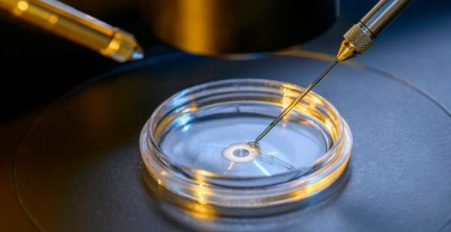
Human trafficking on a “human egg farm”
Three Thai women have escaped a horrific human trafficking ring being referred to as a “human egg farm” in the Transcaucasian country Georgia. Their testimonies reveal that in this brutal operation, women are held captive, injected with hormones, and their eggs are forcibly extracted for black market in-vitro fertilization (IVF) sales.
A survivor who bought her freedom and returned to Thailand tipped off an NGO which helped secure the release of the women. However, there are still hundreds of others who have been trafficked and are still trapped in this compound.
Imprisonment, forced medical procedures, and the threat of arrest
According to The Express Tribune, the victims were lured through fake surrogate job offers on Facebook, and were promised 400,000 to 600,000 baht, the equivalent of $12,000 to $18,000 USD. But upon arrival, they were imprisoned with over 100 other women, had their passports confiscated, subjected to forced medical procedures, and threatened with arrest if they returned to Thailand.
One of the women, who did not disclose her name, spoke at a press conference in Thailand wearing a face mask and hat. As written in a report by Reuters:
She said she responded to a social media advertisement for surrogate mothers who would live with families and be paid 25,000 baht ($742.94) a month. She said that after agreeing she was brought to Georgia, via Dubai and Armenia, where two Chinese nationals escorted her to a house.
She said: “They took us to a house where there were 60 to 70 Thai women. The women there told us there was no (surrogacy) contracts or parents.”
The women, she said, “would be injected to get treatment, anesthetized and their eggs would be extracted with a machine. After we got this information and it was not the same as the advertisement, we got scared, we tried to contact people back home.”
At the press conference, the women also revealed how they had feigned illness to appear weak to avoid having their eggs harvested.
